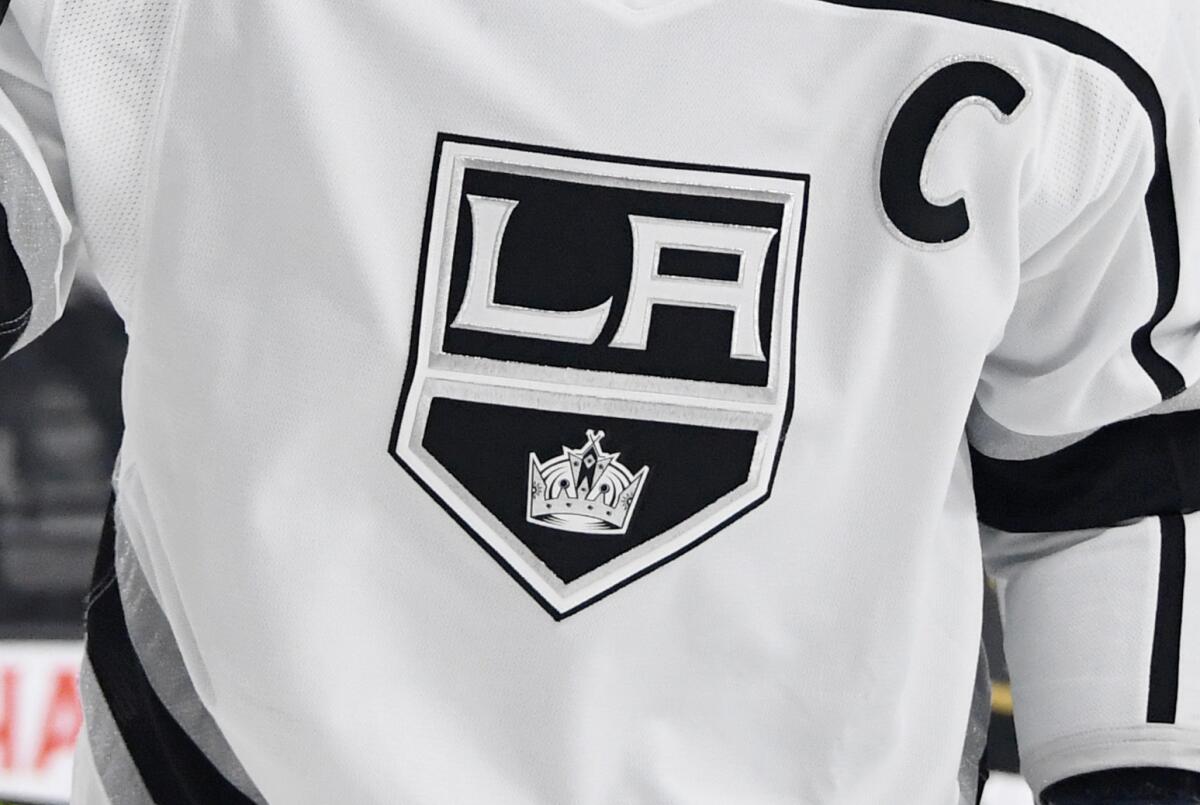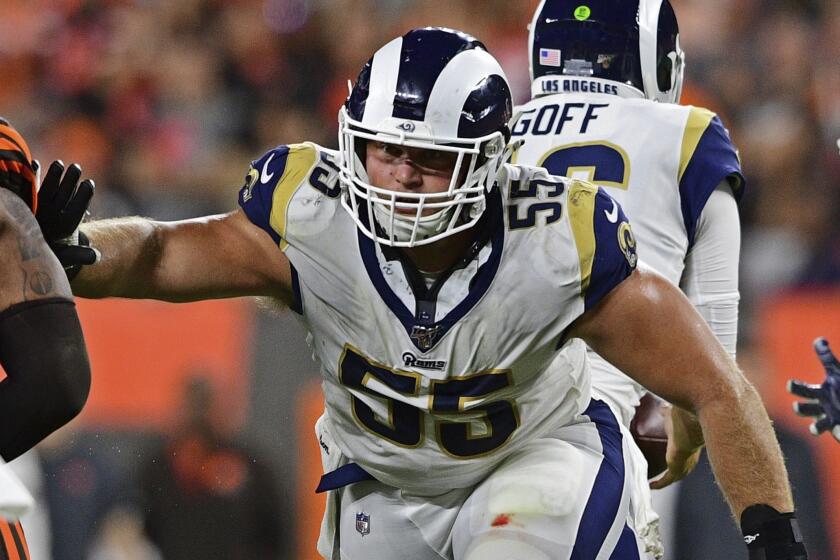Kings hope new initiative will convince people to give blood amid donation shortage

- Share via
The partnership was obvious from the start, a hockey team and a children’s hospital coming together for a crucial cause.
“Hockey and blood,” said Jennifer Pope, the Kings’ vice president of community relations. “We thought that was a no-brainer.”
That was in 2008, when Children’s Hospital Los Angeles was looking for partners to help make its blood-donor program self-sufficient. The Kings became a perfect match, aiding in the acquisition of a mobile blood-donation truck, organizing donation drives before games and at events around the community, and publicly pounding the drum on the importance of donating.
“The L.A. Kings relationship for us is extremely valuable,” said Maurice O’Gorman, CHLA’s chief of laboratory medicine. “They are getting our institutional needs out in the public, in a very public way, from a professional team that has a lot of reach.”
With the Kings’ help, CHLA has long since reached self-sufficiency, meaning it can cover 90% of its patients’ needs through self-raised donations, a rarity among pediatric clinics around the country. Amid the outbreak of COVID-19, however, staying above that threshold has proven to be a unique challenge.Social distancing and self-isolation have sidetracked CHLA’s normal donation plan.
As they did 12 years before, hospital and hockey team have needed to get creative once again.
A look at athletes, coaches and others in the sports world who have tested positive of the coronavirus.
“Any time there’s any sort of shortage or any time there’s any sort of emergency need, we’re always happy and willing to promote whatever they need,” Pope said. “The hospital still has to function. The hospital still needs to satisfy the needs of their patients.”
Barely a week after the NHL season was suspended last month, the team launched a “Blood and Pucks” initiative, offering two free tickets to games next season to any healthy fan who goes into CHLA’s clinic to donate blood.
“The Kings recognized this very early and came to us, asking how they can help,” O’Gorman said. “We can’t even explain the gratitude that we feel to our donors, to the Kings and everybody that is supporting us in these unusual times.”
Of all the second-hand consequences to come out of the COVID-19 pandemic, a lack of blood donations has been among the most serious.
To remain self-sufficient, O’Gorman said CHLA needs roughly 40 donations per day. Normally, it can procure half that amount annually through mobile blood drives, sending the “bloodmobile” donation truck — “a vehicle that the Kings helped us resource to acquire,” O’Gorman said — around the Southland to build up its supply.
“So you can imagine, with no social gatherings, the closing of schools, the closing of universities,” O’Gorman said with a sigh, “half of our blood supply access to donors has been cut off.”
So far, CHLA has been able to maintain its minimum donation mandate.
“But as you can see, with 40 a day, our job is never done,” O’Gorman said. “The water is running full blast and the drain is wide open.”
In-house donations from CHLA’s more than 5,000 employees have helped, but so too has the Kings’ doubling-down on donation efforts. While the hospital doesn’t track exactly how many walk-ins are a result of the Kings’ marketing efforts, the anecdotal evidence has been overwhelming.
“We all don’t have the funds to donate $20, $100, $1,000,” Pope said. “But everyone has the capability to donate blood, and it gives our fans and the general public a way to give back.”
One example: Pope received an email last week from a fan, John Ufland, who organized donations among his five-team adult league in Panorama City, staggering three donation days across April.
“I’ve got like 60 hockey players that I know,” said Ufland, who added that his group will donate all the tickets they receive back to the Kings’ Care Foundation. “I figured, well, we have a lot of extra blood right now that we can do something with.”
It all explains why O’Gorman, a Kings’ season-ticket holder himself, used such words as “unique” and “personal” to describe the team’s relationship with CHLA. It goes beyond occasional player visits and performative philanthropic duties. The hospital has treated children of Kings players and staff members, including Pope’s son Charlie, who spent much of his first two years in and out of CHLA while battling hydrocephalus, a condition in which fluid builds up in the skull and causes the brain to swell.
“For programs like CHLA and its blood donor center, that is stuff that is vital to so many kids and so many people,” Pope said. “It’s something that we want to do.”
Click here for more information on how to donate blood to CHLA.
More to Read
Go beyond the scoreboard
Get the latest on L.A.'s teams in the daily Sports Report newsletter.
You may occasionally receive promotional content from the Los Angeles Times.








